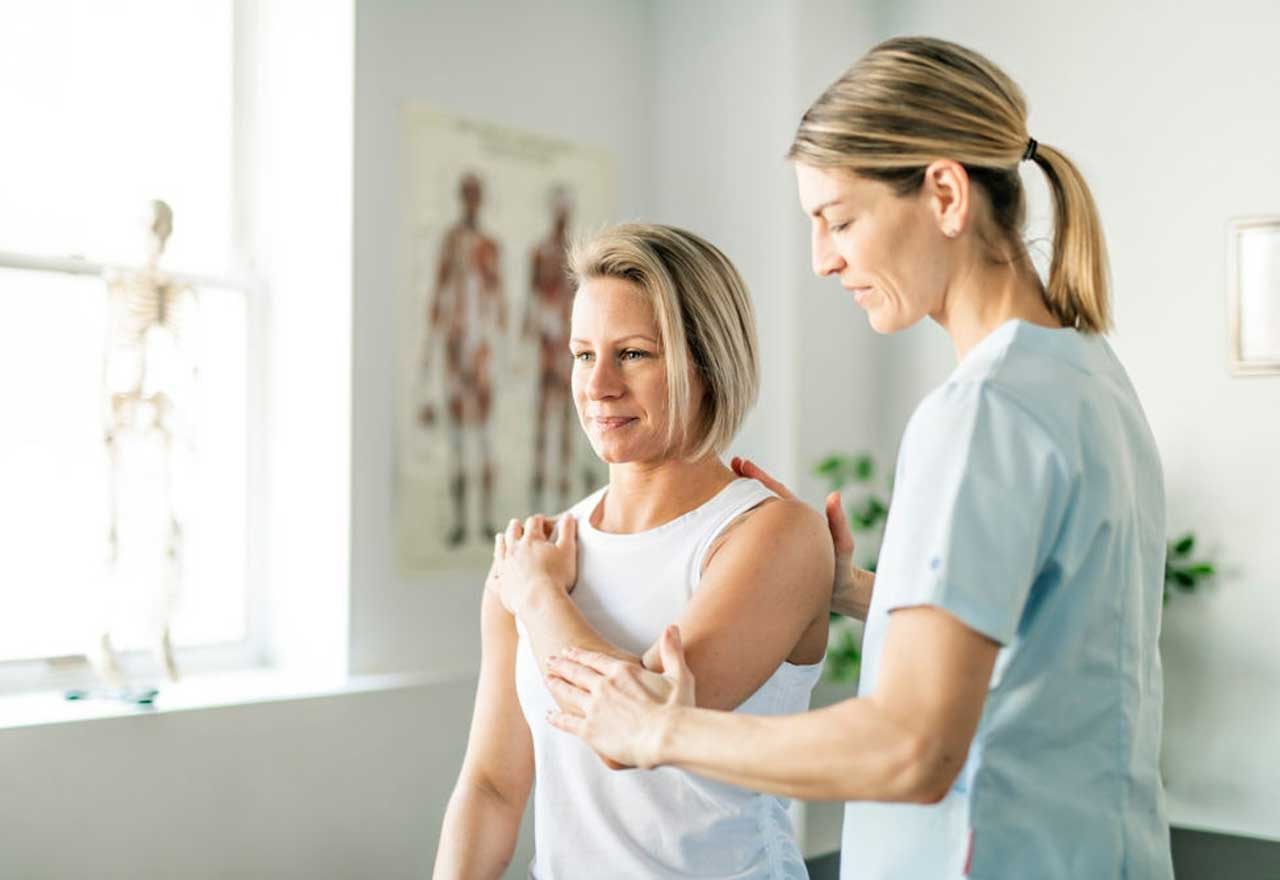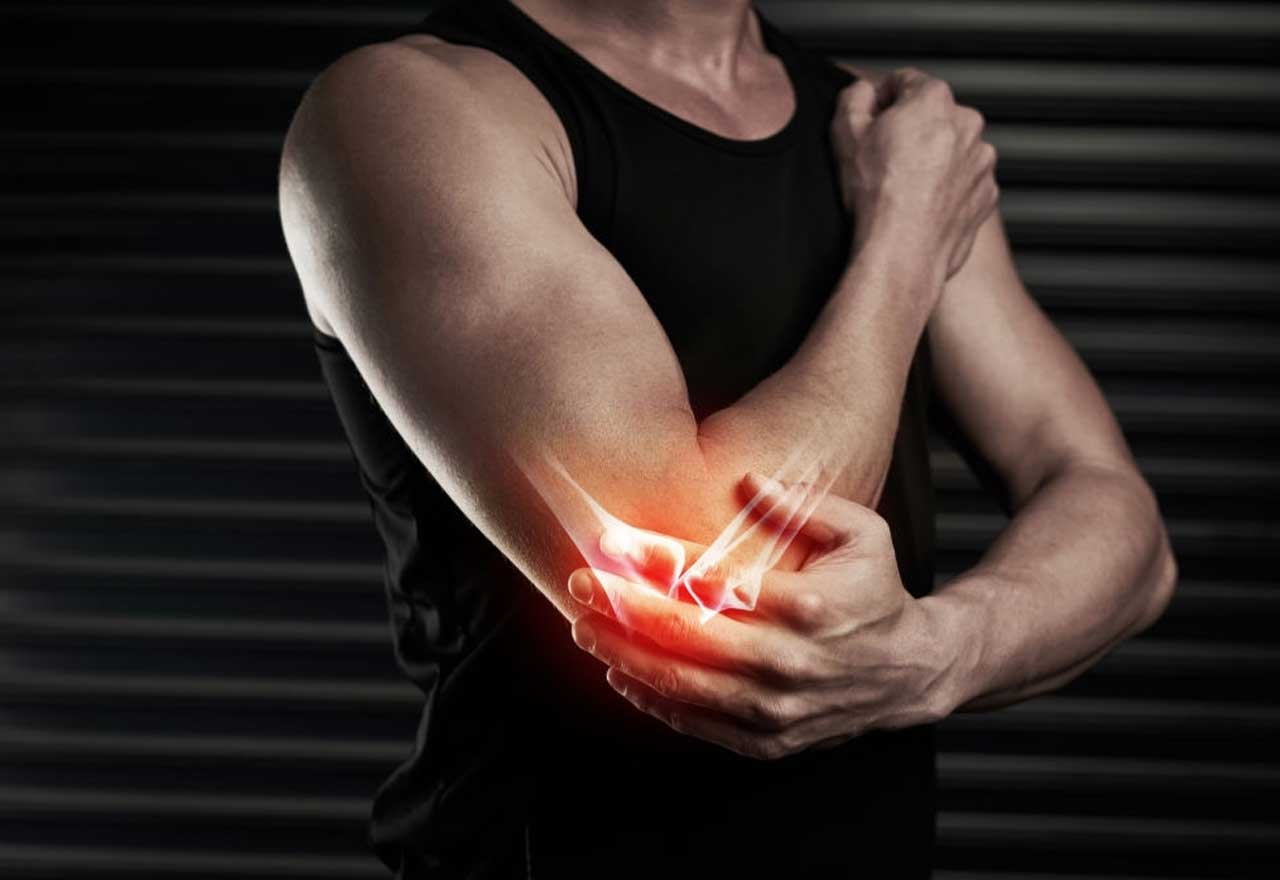Epicondilitis / Tennis Elbow
Tennis Elbow (Lateral Epicondylitis)
Tennis elbow is painful weakening of the tendons that join your forearm muscles to your bones. It happens when you work your elbow too much by repeating certain motions. You might hear your doctor call it lateral epicondylitis. Despite the name, tennis causes only about 5% of cases. You can get it after doing any kind of repetitive movement, like painting or using hand tools. Tennis elbow is a common injury that usually needs only minor treatment, but it takes time and rest to heal.
Rehabilitation
Lorem ipsum dolor sit amet, consectetur adipiscing elit, sed do eiusmod tempor incididunt ut labore et dolore magna aliqua. Ut enim ad minim veniam, quis nostrud exercitation ullamco laboris nisi ut aliquip ex ea commodo consequat. Duis aute irure dolor in reprehenderit in voluptate velit esse cillum dolore eu fugiat nulla pariatur. Excepteur sint occaecat cupidatat non proident, sunt in culpa qui officia deserunt mollit anim id est laborum.


Prevention
Lorem ipsum dolor sit amet, consectetur adipiscing elit, sed do eiusmod tempor incididunt ut labore et dolore magna aliqua. Ut enim ad minim veniam, quis nostrud exercitation ullamco laboris nisi ut aliquip ex ea commodo consequat. Duis aute irure dolor in reprehenderit in voluptate velit esse cillum dolore eu fugiat nulla pariatur. Excepteur sint occaecat cupidatat non proident, sunt in culpa qui officia deserunt mollit anim id est laborum.
No matter whether your condition was caused by a sport, work
accident or otherwise, we welcome the chance to serve you
accident or otherwise, we welcome the chance to serve you
Training activities offered
Clinical diagnosis of pain of sacroiliac origin, simple, rapid and based on the evidence:
Duration: 1:30h
Theoretical and practical course
Theoretical and practical course
PPAS: Physiotherapeutic puncture with dry needles - An emerging practice in physiotherapy
Duration: 1:00h
Theoretical course and practical demonstration
Goal: To inform physicians about the PPAS, a new treatment technique reserved for physiotherapists and legally permitted in Quebec since 2011.
Discover the history of PPAS, understand the technique and its mechanisms of action, learn what conditions can be treated with dry needles and watch a demonstration of the technique.
Theoretical course and practical demonstration
Goal: To inform physicians about the PPAS, a new treatment technique reserved for physiotherapists and legally permitted in Quebec since 2011.
Discover the history of PPAS, understand the technique and its mechanisms of action, learn what conditions can be treated with dry needles and watch a demonstration of the technique.
Iontophoresis with dexamethasone: A versatile and non-invasive alternative to musculoskeletal pain
Duration: 1:00h
Theoretical course
Goal: To democratize an underused treatment technique for inflammatory musculoskeletal pain; administration of dexamethasone by iontophoresis is a non-invasive alternative to corticosteroid infiltration or when this is practically or technically more difficult to perform.
Know the technique of administration of dexamethasone by iontophosresis and discuss, using a case history, the conditions that may benefit from this treatment.
Theoretical course
Goal: To democratize an underused treatment technique for inflammatory musculoskeletal pain; administration of dexamethasone by iontophoresis is a non-invasive alternative to corticosteroid infiltration or when this is practically or technically more difficult to perform.
Know the technique of administration of dexamethasone by iontophosresis and discuss, using a case history, the conditions that may benefit from this treatment.
Musculoskeletal update: the shoulder
Duration: 1:00h
Theoretical course and practical demonstration
Purpose: Refreshment on the orthopedic non-traumatic shoulder examination: to focus on the key elements of the subjective examination, the objective examination, the analysis and the treatment plan.
Theoretical course and practical demonstration
Purpose: Refreshment on the orthopedic non-traumatic shoulder examination: to focus on the key elements of the subjective examination, the objective examination, the analysis and the treatment plan.
Musculoskeletal update: the knee
Duration: 1:00h
Theoretical course and practical demonstration
Purpose: Refreshment on the orthopedic non-traumatic knee examination: to focus on the key elements of the subjective examination, the objective examination, the analysis and the treatment plan.
Theoretical course and practical demonstration
Purpose: Refreshment on the orthopedic non-traumatic knee examination: to focus on the key elements of the subjective examination, the objective examination, the analysis and the treatment plan.
Demystify motor control and neuromuscular control
Duration: 1:00h
Theoretical course and practical demonstration
Goal: To understand the theoretical concepts of motor control or neuromuscular control and to appreciate, with the help of practical demonstrations, the importance and the implication of motor control deficits in musculoskeletal pathologies.
Physicians are regularly put in contact with the terms “motor control” and “neuromuscular control exercises” in physiotherapist assessment or follow-up notes. They daily diagnose motor control problems in their patients and prescribe neuromuscular control exercises. The assessment and treatment of motor control deficits is an emerging practice in musculoskeletal and the appreciation of the quality of movement is considered by many experts to be fundamental to the understanding and management of musculoskeletal disorders.
Theoretical course and practical demonstration
Goal: To understand the theoretical concepts of motor control or neuromuscular control and to appreciate, with the help of practical demonstrations, the importance and the implication of motor control deficits in musculoskeletal pathologies.
Physicians are regularly put in contact with the terms “motor control” and “neuromuscular control exercises” in physiotherapist assessment or follow-up notes. They daily diagnose motor control problems in their patients and prescribe neuromuscular control exercises. The assessment and treatment of motor control deficits is an emerging practice in musculoskeletal and the appreciation of the quality of movement is considered by many experts to be fundamental to the understanding and management of musculoskeletal disorders.
